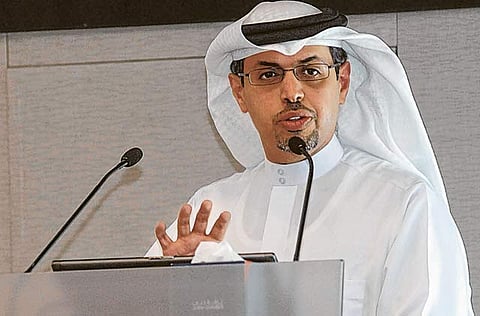Turkey-UAE investments hit $10b in 2010
Deals were driven by tourism, energy and construction with financial services and infrastructure growing too

Dubai: Investments between Turkey and the UAE reached $10 billion (Dh36.78 billion) in 2010, driven by tourism, energy and construction, according to the Turkish Ambassador to the UAE.
UAE investments in Turkey are expected to increase by $1 billion in 2011 to $5 billion, said Vural Altay during the Country Focus Briefing on Turkey organised by the Dubai Chamber of Commerce and Industry (DCCI) yesterday.
"The Turkish real estate market is big for UAE and GCC investors," said Mehmet Sami, executive board member of ATA Invest, Turkey's largest independent bank.
Investments in real estate contribute 15 per cent to Turkish foreign direct investments (FDI) and the sector is one of Turkey's fastest growing this year, he added.
UAE investments in Turkey totalled $4 billion in the tourism and energy sectors last year, Altay said. About 55,000 tourists from the UAE visited Turkey last year.
Turkish investments in the UAE were $6 billion, mainly in construction, he added.
Balanced with demand
Although demand for construction-related services and materials "slowed down" in Dubai, it has "balanced out" with demand from Abu Dhabi, said Gulizar Yavas, Turkish Commercial Attache.
In 2010, trade between Turkey and the UAE increased 14 per cent to Dh12.76 billion compared to the previous year. There are 500 Turkish companies operating in the UAE.
The most popular products the UAE exports to Turkey include pearls, precious metals and stones, plastics, aluminium, boilers and machinery, essential oil and vehicles, according to a recent DCCI study.
The UAE mainly imports iron, steel, textiles and food from Turkey, said Sami.
Turkey ranks as Dubai's 18th biggest trading partner.
Dubai's non-oil trade with Turkey reached Dh8.8 billion from January to December 2010, according to the latest figures.
The GCC countries' trade with Turkey totalled $10.06 billion in 2010 compared to $8.05 billion in 2009.
But both the UAE and GCC comprise only a small portion of Turkish trade in the Mena region, said Sami.
Turkey's trade in the region increased to 26.5 per cent in 2010 compared to 18.8 per cent six years ago, he added.
Turkey alone produces one per cent of the world's trade, he noted. Its total trade stands at $320 billion, not far from India's $443 billion, he added.
Opportunities
Speakers at the Country Briefing highlighted the attractivness of Turkey as a trade and investment destination for the UAE.
Turkey is the fastest growing economy among OECD countries and provides easy access to 1.5 billion consumers in Europe, Central Asia and Mena, said Altay.
The Turkish economy grew 8.9 per cent last year and is expected to be the fastest growing economy in Europe this year, he said.
Sixty per cent of Turkey's 72 million population is less than 30 years old, providing a lucrative consumer market, he added.
The fastest growing sectors are financial services, building materials, infrastructure, health, mining real estate and industrial clusters of autos, yachts and shipbuilding, said Sami.
UAE nationals can obtain a Turkish visa upon arrival, making it easier to conduct business and travel, he added.
"Turkey is interested in tourism and business with the UAE, but there are visa obstacles and delays," said Yavas, noting that Turks must apply for a visa before arrival.
"Turkey offers rich opportunities for Emiratis in finance, trade and investments," said Altay.
**************
Unrest halts projects in Libya
Dubai: Turkey's $15 billion (Dh55.09 billion) worth of projects have come to a standstill in Libya, amid the dire political standoff in the country between protesters and Libyan leader Muammar Gaddafi, according to a senior Turkish investment bank official.
"We don't know the future, but Libya was an important market for us and will continue to be," said Mehmet Sami, an Executive Board Member in Ata Invest, Turkey's largest independent bank.
Various projects
Turkey was involved with a number of projects in contracting, infrastructure, airport terminals, oil pipelines and waterways, he said.
"Libya is important for Turkey for the contracting work we do there. Turkey is the number two contracting country in the world after China," he added.
Turkish contracting companies such as Tekfen and Mesa had a major presence in Libya. There are 20,000 Turkish workers in Libya.



